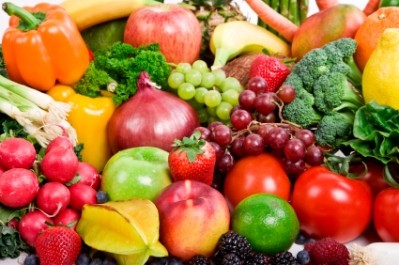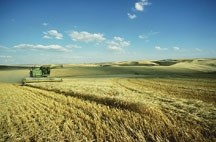Big changes needed to make diets sustainable, report
The Sustainable Consumption Commission was asked by the UK government’s Department for Environment, Food, Rural Affairs to map out evidence on sustainable diets and look at synergies and tensions between public health, the environment, social inequalities, and economic stability.
It points out that no one, universal definition of a sustainable diet exists, but that this must be addressed for the government to meet its goal of a sustainable, secure and healthy food supply. Until now, the healthy eating element has been centre stage.
The commissioners recognise that their findings will have an impact on food production and the food chain in the UK, but details of the consequences fall outside its scope. However calls from other quarters to radically chance eating habits have met with stiff resistance.
Media reports that climate expert Lord Stern was encouraging people to eat less meat in October stirred up fierce debate in the pages of newspapers and online about the role of meat in the modern diet.
The food industry has made much publicity of efforts to improve the health profile of many food products, with reduced levels of salt, sugar and fat. But snack foods, which are often products that make the least nutritional contribution to overall diets, can also be best-sellers and contribute greatly to manufacturers’ revenues.
However the food sector’s initial response to the new report, called Setting the Table, has been temperate.
Julian Hunt, director of communications at the Food and Drink Federation, said: “The food and drink manufacturing industry is a strategically important sector, critical to the future success of the UK food chain and it’s important that sustainability remains high on our priority list.”
However he focused mostly on the waste element of the report.
“No one likes waste and that’s why the food and drink manufacturing sector is playing a leadership role in shaping the future of sustainable food production. Our Five-fold Environmental Ambition, which is now in its third year, is central to our activity in the waste reduction arena and we’ll continue to build on our successes so far.”
Policy recommendations
The report also laid out a number of recommendations for Defra, the Food Standards Agency, and the Department of Health. These include using more detailed criteria to give sustainability guidance, and focusing on certain ‘hot spot’ foods that can have a major impact.
Along with meat and dairy, the other foods and ingredients considered as hotspots are fish, and soy and palm oil in processed foods.
It says attention should also be given to methods of production, processed foods of relatively low nutritional value, and the impact of ingredient and product substitution.
For the FSA, recommendations revolve around giving more comprehensive guidance to consumers. This includes cross-government integrated advice for consumers (IAC) project that will bring together all government food advice and information, including sustainability issues, for consumers on one website. The report also suggests amending the FSA’s Eatwell Plate to “better align nutrition advice with key existing environmental evidence”.
A spokesperson for the FSA said: “The Agency will look with interest at the full SDC Report.
“The Agency is committed to taking sustainable development into account in all its activities including policy decisions and progress has been made across the Agency’s work. We welcome the recognition of the role of the eatwell plate in helping consumers choose, cook and eat a safe, healthy diet. We will consider the role of the eatwell plate through our IAC project work and whether such messages around sustainability could be strengthened.”
World Wildlife Fund, meanwhile, believes the report is the spur the FSA has needed. Mark Driscoll, WWF-UK lead for the One Planet Food programme said:
“To date, the Agency has failed to accept sustainability as a dietary issue: this is evident in its 5-year plan, published a few days ago, which mentions sustainability just once. This attitude has to change – and quickly. WWF’s work on sustainable diets will be fed into this process.
“We have tough targets to meet in terms of reducing the emissions from the UK’s food consumption. Much of these can be made through technological advancements and improved efficiency throughout the food chain. Yet there are also likely to be cuts required in consumption. These cuts could not only benefit the planet, but also the nation’s health.”
Driscoll added that the time and money already invested by the government in work on food waste needs to be met with emphasis on reducing meat and dairy consumption and the consumption of food of low nutritional value.
Setting the table is available online at http://www.sd-commission.org.uk/publications.php?id=1033























